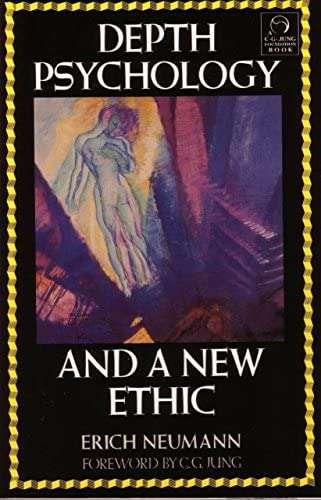And excellent and thought-provoking read that accentuates how people abdicate their responsibility to think for themselves by following the collective ethics of their particular religious denomination, political party, or nation. There is a price to pay for breaking away from the old ethic to be able to live out one’s own thought-through values. It’s helpful to understand the significant pressure that the group applies to the individual to conform to the old ethic. Typically those bound to the old ethic tend to have a significantly stronger reaction to others that do not subscribe to their point of view. The darker side of human beings tends to come to the surface with those who do not follow or who are not attuned to their perspective often leading to rejection, mean-spiritedness, or much worse. The author helps the reader to understand that fundamentalist of any kind (religious, political, or those from any nation) divide people in to us versus them and good versus bad.
The author also addresses what happens when we human beings identify strictly with things that are “good” in us and repress things that we consider bad or even hate about ourselves. Repression may work for a human being somewhat when we were children but it gets pretty ugly if we continue to repress into adolescence and later into adulthood. Many writers have pointed out that the over-identification with what is good inside of us and the repression of things that we do not like or even detest about ourselves is the chief cause of tension and even hatred between individuals, races, and nations.
Erich Neumann was a psychologist, writer, and one of Carl Jung’s most gifted students.
Neumann received his Ph.D. from the University of Berlin in 1927. He practiced analytical psychology in Tel Aviv from 1934 until his death in 1960. For many years, he regularly returned to Zürich, Switzerland to give lectures at the C. G. Jung Institute. He also lectured frequently in England, France and the Netherlands, and was a member of the International Association for Analytical Psychology and president of the Israel Association of Analytical Psychologists.
Erich Neumann contributed greatly to the field of developmental psychology and the psychology of consciousness and creativity. Neumann had a theoretical and philosophical approach to analysis, contrasting with the more clinical concern in England and the United States. His most valuable contribution to psychology was the empirical concept of “centroversion”, a synthesis of extra- and introversion. However, he is best known for his theory of feminine development, a theory formulated in numerous publications, most notably The Great Mother. His works also elucidate the way mythology throughout history reveals aspects of the development of consciousness that are parallel in both the individual and society as a whole.
Depth Psychology and a New Ethic
Details
The modern world has witnessed a dramatic breakthrough of the dark, negative forces of human nature. The “old ethic,” which pursued an illusory perfection by repressing the dark side, has lost its power to deal with contemporary problems. Erich Neumann was convinced that the deadliest peril now confronting humanity lay in the “scapegoat” psychology associated with the old ethic. We are in the grip of this psychology when we project our own dark shadow onto an individual or group identified as our “enemy,” failing to see it in ourselves. The only effective alternative to this dangerous shadow projection is shadow recognition, acknowledgement, and integration into the totality of the self. Wholeness, not perfection, is the goal of the new ethic.
Although this book was written some time ago, and the world is changing fast, nevertheless the topic is very relevant today. Erich Neumann looks at the possibility of a new set of ethics developing in society, one that requires a lot more conscious action on the part of the individual. He suggests that this new ethic is appearing in more and more cases and will gradually replace the old ethic which most great religions had developed…. the new ethic is the next stage in our development.
The only problem I had with this book is the language used. It was originally written in German and has obviously been translated by a German speaker because the language is often unnecessarily complicated.
Despite this, I found the book very interesting… and hopeful that amongst all the current chaos something is developing in a positive direction, even if it may be difficult to see at the moment.
The modern world has witnessed a dramatic breakthrough of the dark, negative forces of human nature. The “old ethic,” which pursued an illusory perfection by repressing the dark side, has lost its power to deal with contemporary problems. Erich Neumann was convinced that the deadliest peril now confronting humanity lay in the “scapegoat” psychology associated with the old ethic. We are in the grip of this psychology when we project our own dark shadow onto an individual or group identified as our “enemy,” failing to see it in ourselves. The only effective alternative to this dangerous shadow projection is shadow recognition, acknowledgement, and integration into the totality of the self. Wholeness, not perfection, is the goal of the new ethic.
“synopsis” may belong to another edition of this title.



